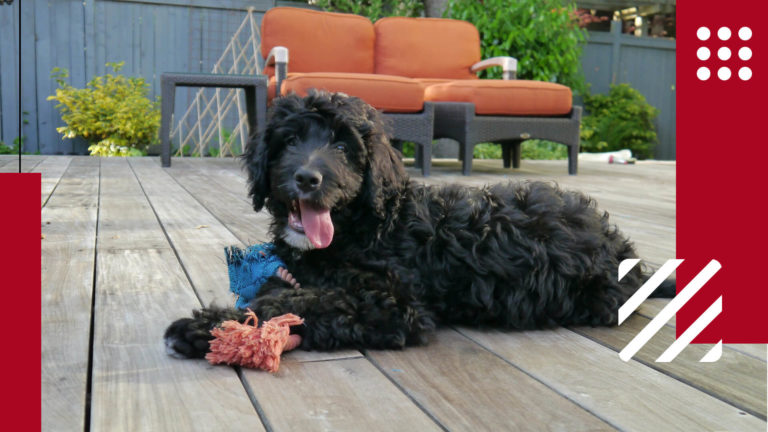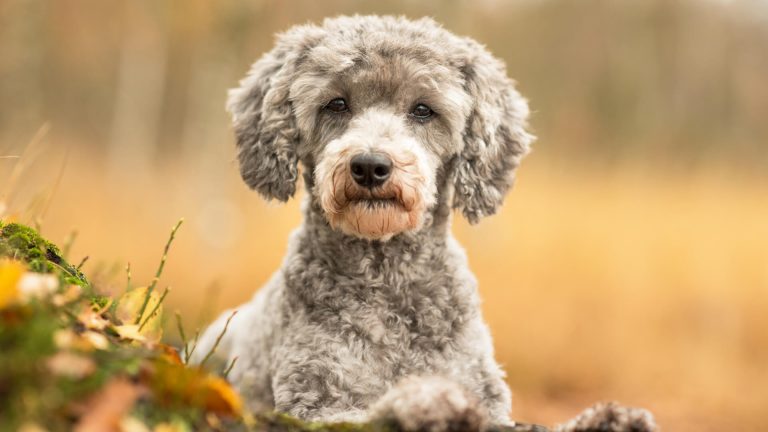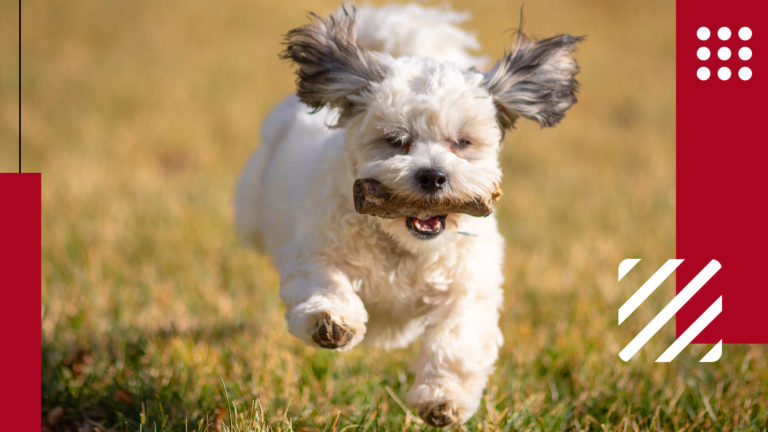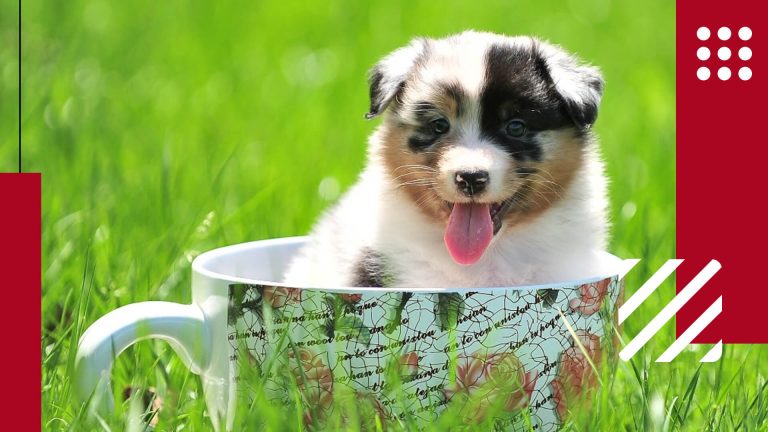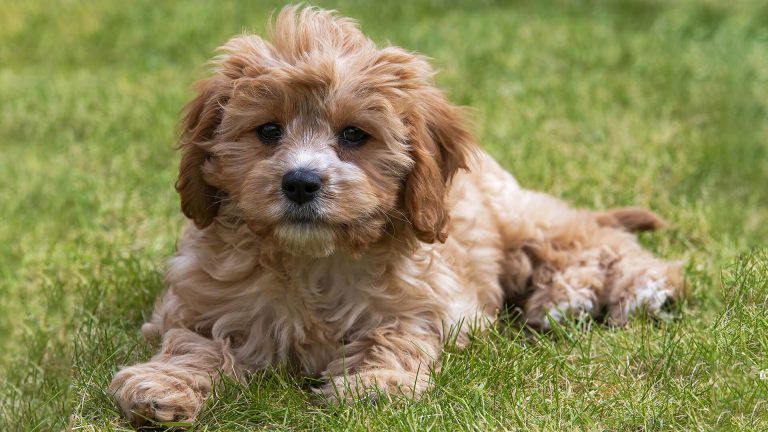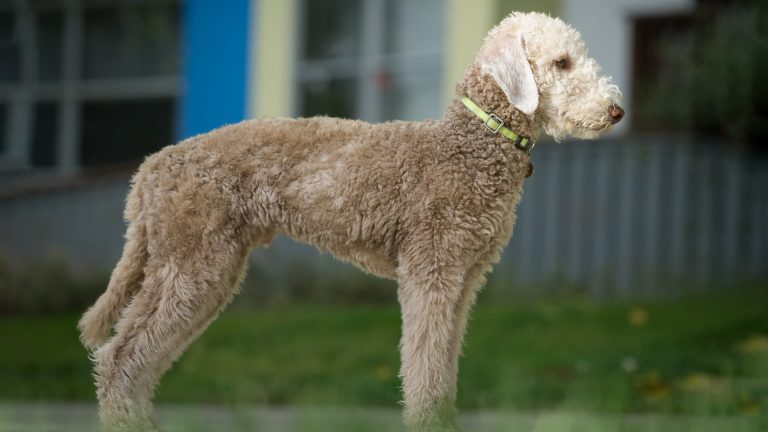The Bichon Frise is a small, energetic breed of dog that originated in the Mediterranean region. The breed is believed to have descended from the Barbet, a type of water spaniel, and the Maltese, a small, fluffy white dog. The Bichon Frise was developed as a companion dog and was popular with sailors, who kept the dogs on their ships for entertainment. The breed was also popular with circus performers, who used the dogs in their acts. The Bichon Frise is known for its playful, affectionate personality and its fluffy, white coat, which requires regular grooming to maintain its appearance.
Distinctive Features of Bichon Frise
| Breed Name | Bichon Frise |
| Lifespan | Up to 15 years |
| Size | Up to 12 inches |
| Weight | 10-18 pounds |
| Coat | Curly, dense, and hypoallergenic |
| Color | White |
| Health risk | Moderate |
| Unique trait | Curly and fluffy coat with a lively, happy demeanor |
| Famous for | Being a companion dog and show dog |
| Temperament | Affectionate, friendly, and playful |
| Maintenance | High |
| Adaptability | High |
| Behavior | Generally good, but supervision is recommended |
| Personality | Cheerful, alert, and intelligent |
| Social | Generally good with other dogs and pets if properly socialized |
The Bichon Frise is a small breed of dog, typically weighing between 7 and 12 pounds and standing about 9 to 12 inches tall at the shoulder. The breed is known for its round, fluffy head and large, dark eyes, as well as its small, pointed ears. The Bichon Frise has a soft, fluffy coat that is typically white in color, although some individuals may have cream or apricot-colored markings. The breed is known for its playful, energetic personality and is generally good with children and other pets.
The Bichon Frise has an average lifespan of 12 to 15 years. It is a relatively healthy breed, although it is prone to some health issues such as hip dysplasia, dental problems, and eye problems. It is important for Bichon Frise owners to keep their dogs up to date on their vaccinations and to provide regular veterinary care to help prevent these and other health issues.
In terms of size, the Bichon Frise is a small breed that is well-suited to apartment living or other small living spaces. They are energetic and playful, but do not require a lot of space to run and play. They are generally good with children and make good family pets, as long as they receive the necessary socialization and training.
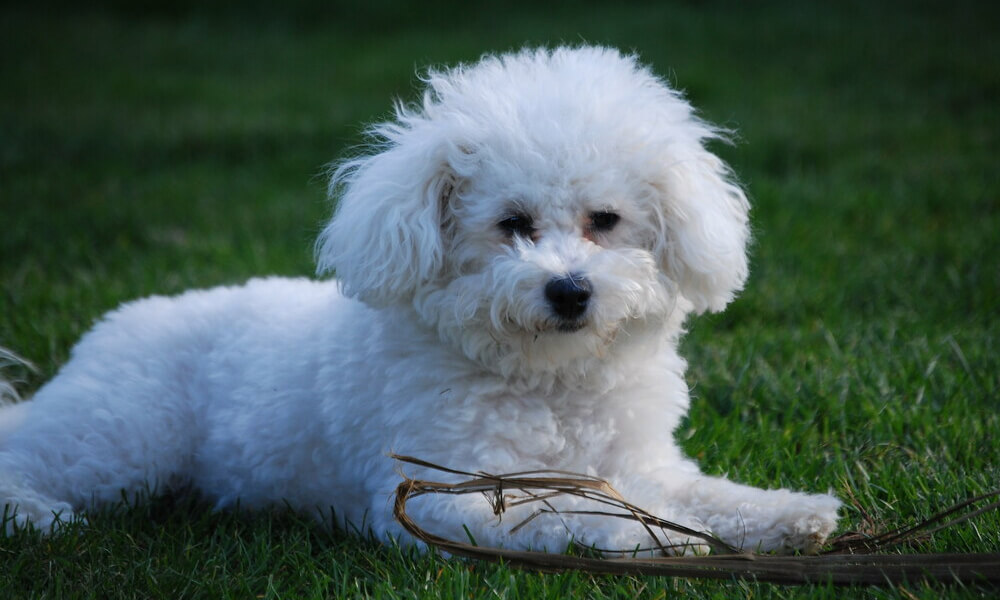
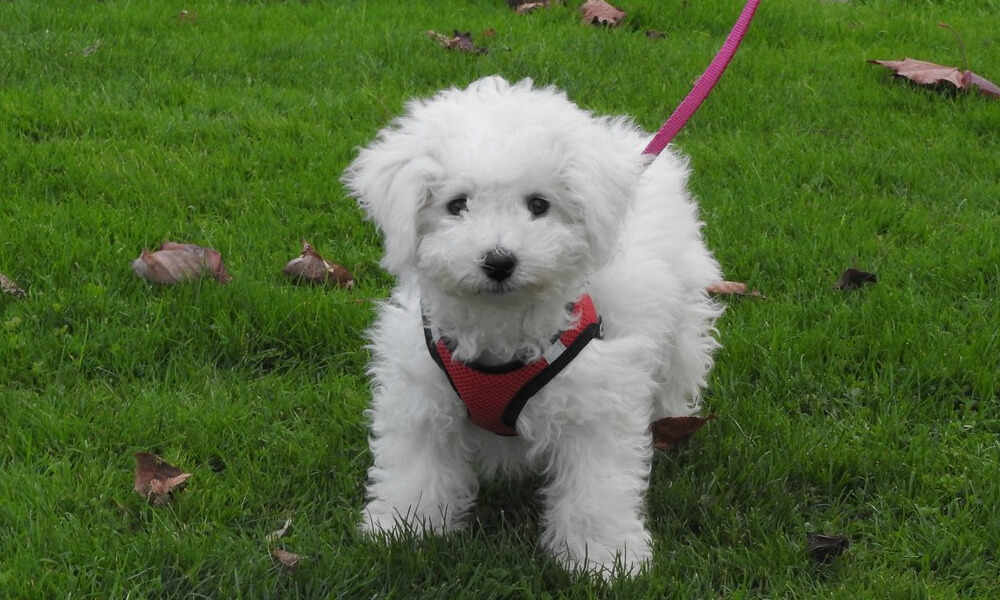
How to Take Care of Your Pet Bichon Frise?
Taking care of a Bichon Frise requires love, attention, and a gentle touch. These fluffy and cheerful dogs thrive on companionship and will quickly become an adored member of your family. With their playful nature and affectionate personality, they bring joy to every household they join.
How to Set Up a Habitat for a Pet Bichon Frise?
To set up a habitat for a Bichon Frise, you will need to provide the following:
- A crate or kennel: Bichon Frise puppies should be crate trained to help them learn good potty habits and to provide a safe place for them to sleep and rest. A crate or kennel should be large enough for the puppy to stand up, turn around, and stretch out, but not so large that they can eliminate in one end and sleep in the other.
- A bed: Bichon Frises are small dogs and will need a small, comfortable bed to sleep on. A crate pad or a small foam dog bed will work well.
- Toys: Bichon Frises are playful and energetic, so they will need a variety of toys to keep them entertained. These could include chew toys, balls, and plush toys.
- A water bowl and food dish: Your Bichon Frise will need a water bowl and food dish to eat and drink from. These should be placed in a convenient location and should be cleaned and refilled regularly.
- A leash and collar: Your Bichon Frise will need a leash and collar for walks and other outdoor activities. Make sure the collar fits properly and is not too tight or too loose.
- A grooming kit: Bichon Frises have a long, fluffy coat that requires regular grooming to maintain its appearance. You will need a slicker brush, comb, and scissors to keep your Bichon Frise well-groomed.
In addition to these items, it is important to provide your Bichon Frise with regular exercise and socialization to help keep them healthy and happy. This could include walks, playtime, and training sessions.
What to Feed Your Pet Bichon Frise?
Bichon Frises are small dogs with high energy levels and a small stomach, so they will need a diet that is high in quality protein and nutrients to help them maintain their health and energy. A good diet for a Bichon Frise should include:
- High-quality dog food: Look for a high-quality dog food that is appropriate for your Bichon Frise's size and life stage. Puppies and adult dogs have different nutritional needs, so be sure to choose a food that is formulated for your dog's specific needs.
- Fresh, clean water: It is important to make sure your Bichon Frise has access to fresh, clean water at all times to help prevent dehydration.
- Limited treats: Treats can be an important part of a Bichon Frise's diet, but it is important to feed them in moderation to prevent weight gain. Choose treats that are low in calories and high in nutrients.
- Proper portion sizes: Bichon Frises are small dogs, so they will not need as much food as larger breeds. Be sure to feed your Bichon Frise the appropriate portion size for their size and activity level to help prevent obesity.
What to Avoid Feeding Your pet Bichon Frise?
There are a few types of food and treats that you should avoid feeding to your Bichon Frise to help keep them healthy and prevent digestive issues:
- Chocolate: Chocolate contains theobromine, which can be toxic to dogs and can cause symptoms such as vomiting, diarrhea, and tremors.
- Grapes and raisins: Grapes and raisins can be toxic to dogs and can cause kidney failure.
- Onions and garlic: These foods can cause digestive issues and can also cause anemia in dogs.
- Avocado: Avocado contains persin, which can cause vomiting and diarrhea in dogs.
- Nuts: Some nuts, such as macadamia nuts, can be toxic to dogs and can cause symptoms such as vomiting, tremors, and hyperthermia.
- Fatty foods: Foods that are high in fat can cause pancreatitis in dogs, which can be a serious and potentially life-threatening condition.
Keep these and other potentially toxic foods away from your Bichon Frise to help prevent digestive issues and other health problems. If you are unsure about what foods are safe for your Bichon Frise to eat, it is always best to consult with your veterinarian. Bichon Frise's health or behavior, it is important to consult with your veterinarian as soon as possible.
Brushing, Bathing & Grooming Needs of Pet Bichon Frise
Bichon Frises have a long, fluffy coat that requires regular grooming to maintain its appearance. Some of the grooming needs of a Bichon Frise include:
- Brushing: Bichon Frises should be brushed at least once a week to remove tangles and mats. A slicker brush or a comb can be used to gently work through tangles and remove loose fur.
- Bathing: Bichon Frises should be bathed every four to six weeks to keep their coat clean and healthy. Use a mild puppy shampoo to avoid drying out their skin.
- Trimming: Bichon Frises' coat should be trimmed every six to eight weeks to maintain its shape and to remove any tangles or mats that cannot be brushed out.
- Nail trimming: Bichon Frises' nails should be trimmed every six to eight weeks to prevent them from becoming too long and causing discomfort or problems with walking.
- Ear cleaning: Bichon Frises' ears should be cleaned every two to four weeks to remove dirt and debris and to prevent ear infections.
Get your Bichon Frise used to grooming at an early age to make the process easier and more enjoyable for both you and your dog. If you are not comfortable grooming your Bichon Frise yourself, you can also have a professional groomer do it for you.
Health Concerns of Pet Bichon Frise
Bichon Frises are generally a healthy breed, but like all breeds, they are prone to certain health concerns. Some of the most common health concerns in Bichon Frises include:
- Hip dysplasia: This is a condition in which the hip joint is improperly formed, which can lead to pain and lameness.
- Dental problems: Bichon Frises are prone to dental issues such as gum disease, which can lead to tooth loss if not treated.
- Eye problems: Bichon Frises can be prone to eye problems such as cataracts and glaucoma.
- Skin allergies: Some Bichon Frises may develop allergies that cause skin irritation and itching.
- Ear infections: Bichon Frises have small, floppy ears that can be prone to infections if not properly cared for.
- Diabetes Mellitus: Bichon Frise dogs can develop Diabetes Mellitus, a chronic condition where the body fails to regulate blood sugar levels properly, leading to increased thirst, frequent urination, and weight loss.
- Corneal Dystrophy: Corneal dystrophy is a genetic eye disorder that affects the Bichon Frise breed, causing opacity and cloudiness in the cornea, potentially leading to vision impairment or loss.
- Cataracts: Bichon Frise dogs can develop cataracts, a clouding of the lens in the eye that can cause vision problems. Veterinary care is essential for diagnosis and treatment of this condition.
- Bladder Stones: Bladder stones can occur in Bichon Frises, leading to urinary problems. Prompt diagnosis and treatment are essential to prevent discomfort and potential complications. Veterinary care is crucial.
- Autoimmune Hemolytic Anemia (AIHA): Autoimmune hemolytic anemia (AIHA) is a condition in which a Bichon Frise's immune system mistakenly attacks its own red blood cells, leading to anemia and potential health complications.
- Immune-Mediated Thrombocytopenia (IPT): Immune-mediated thrombocytopenia (IPT) is a condition in Bichon Frise dogs where the immune system mistakenly attacks and destroys platelets, leading to low platelet counts and potential bleeding disorders.
- Liver Shunts: Bichon Frise dogs can be born with liver shunts, a condition where certain blood vessels bypass the liver, resulting in the presence of toxins in the bloodstream. Severe cases are typically detected early, while others may be diagnosed later. Common symptoms include circling behavior, excessive drooling, and seizures. The most effective treatment is corrective surgery.
To help prevent these and other health concerns, it is important to keep your Bichon Frise up to date on their vaccinations and to provide regular veterinary care. It is also important to feed your Bichon Frise a high-quality diet and to groom them regularly to help maintain their overall health.
Training and Playing with Your Pet Bichon Frise
Bichon Frises are intelligent, energetic, and playful dogs that enjoy interacting with their owners and learning new things. Training and playing with your Bichon Frise can help keep them healthy and happy, and it can also strengthen the bond between you and your dog.
Some tips for training and playing with your Bichon Frise include:
- Use positive reinforcement: Bichon Frises respond well to positive reinforcement training techniques, such as praise, treats, and toys. Avoid using punishment or negative reinforcement, as these can be stressful and harmful to your dog.
- Start training early: It is important to start training your Bichon Frise as early as possible to help them learn good habits and to establish yourself as the leader of the pack.
- Keep training sessions short and fun: Bichon Frises have short attention spans, so it is important to keep training sessions short and fun to keep their attention and keep them motivated.
- Provide plenty of playtime: Bichon Frises are energetic dogs that enjoy playing and interacting with their owners. Provide plenty of playtime and activities to keep your Bichon Frise entertained and engaged.
- Socialize your Bichon Frise: It is important to socialize your Bichon Frise from an early age to help them learn to interact with other dogs and people in a positive way. This can help prevent fearfulness and aggression in your Bichon Frise.
By training and playing with your Bichon Frise regularly, you can help keep them healthy, happy, and well-behaved.
What It's Like to Keep a Bichon Frise as a Pet?
The Bichon Frise is a small and cheerful dog breed known for its adorable appearance, friendly nature, and playful personality. Here's what it's like to have a Bichon Frise as a pet:
Temperament: Bichon Frises are known for their friendly and affectionate temperament. They are social dogs that typically get along well with people of all ages, including children, and are usually good with other pets. They thrive on human companionship and enjoy being part of the family.
Activity Level: While Bichon Frises are small in size, they have a moderate activity level. They enjoy daily walks, playtime, and interactive games. They can adapt well to different living situations, including apartments, as long as they receive regular exercise and mental stimulation to prevent boredom.
Living Environment: Bichon Frises can adapt well to various living environments, including apartments and houses, as long as they receive attention and exercise. They are indoor dogs and prefer to be close to their owners. A securely fenced yard provides a safe area for them to play and explore.
Companion Dogs: Bichon Frises are renowned companion dogs due to their friendly and loving nature. They form strong bonds with their owners and enjoy being involved in family activities. Their small size and gentle temperament make them suitable for families, seniors, or individuals looking for a loyal and affectionate canine companion.
Other Pets to Keep or Avoid with Bichon Frises
Bichon Frises are generally good with other pets, especially if they are properly socialized from an early age. However, it is important to consider the size, energy level, and personality of any other pets you may be considering bringing into your home.
For example, if you are considering adopting another dog, it is important to choose a breed that is compatible with your Bichon Frise in terms of size and energy level. A large, energetic breed may not be the best match for a small, energetic Bichon Frise, as they may knock them over or be too rough in play. On the other hand, a small, calm breed may be a good match for a Bichon Frise.
If you are considering adopting a cat, it is important to choose a breed that is social and friendly, as some cats may not be comfortable interacting with dogs. It is also important to introduce the cat and dog slowly and to provide plenty of supervision until they are comfortable with each other.
Facts About Bichon Frises
Here are some interesting facts about Bichon Frises:
- Bichon Frises are originally from the Mediterranean region.
- The breed was developed as a companion dog and was popular with sailors and circus performers.
- Bichon Frises are known for their playful, affectionate personality and their fluffy, white coat.
- Bichon Frises are good with children and make good family pets, as long as they receive the necessary socialization and training.
- The breed is intelligent and energetic, and enjoys training and playing with their owners.
- Bichon Frises are generally good with other pets, especially if they are properly socialized from an early age.
Frequently Asked Questions About Bichon Frise
Here are some frequently asked questions about Bichon Frises:
Are Bichon Frises good with children?
Bichon Frises are generally good with children and make good family pets, as long as they receive the necessary socialization and training. It is important to supervise interactions between children and any pet to ensure the safety of both.
Do Bichon Frises bark a lot?
Bichon Frises are not known for being excessive barkers, but like all breeds, they may bark when they are excited, anxious, or trying to alert their owners to something. Proper training and socialization can help prevent excessive barking in Bichon Frises.
How much exercise do Bichon Frises need?
Bichon Frises are energetic dogs and need daily exercise to stay healthy and happy. A daily walk or playtime should be sufficient to meet their exercise needs.
Are Bichon Frises easy to train?
Bichon Frises are intelligent dogs and can be easily trained with positive reinforcement techniques, such as praise, treats, and toys. They respond well to consistent training and may learn new tricks and commands quickly.
Do Bichon Frises shed a lot?
Bichon Frises have a long, fluffy coat that does shed, but they are considered a low-shedding breed. Regular grooming can help control shedding and keep their coat healthy.

